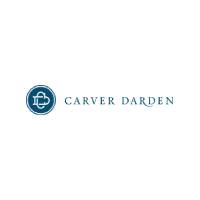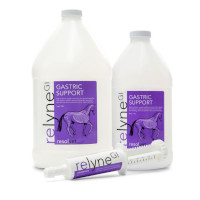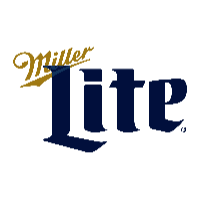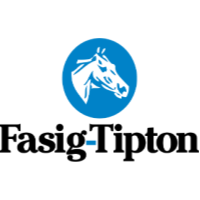SHIRER LETS HIS BARN DO THE TALKING
Up and coming trainer has won with 41% of his starters
New Orleans (March 10, 2020) – Trainer Matt Shirer won with seven of his first ten starters at the current Fair Grounds meet, and his barn hasn’t slowed down much since. Entering Wednesday’s racing action, he’s won three in a row, four of his last five and with seven of his last 19 starters. Coming off a career-year in which he won 30 races from 121 tries (25%), the soft spoken 34-year-old native of Cleveland, Ohio, currently sits tenth in the Fair Grounds’ standings with 15 wins from 37 starts (41%). He wasn’t born into the industry and he’s yet to win a stakes race, but Matt Shirer’s story is certainly worth telling.
How did you get interested in horse racing?
“Nobody in my family has anything to do with horses or racing,’ Shirer said. “I wasn’t that kid who grew up around horses or snuck his way into the racetrack. I actually got interested in horse racing by watching the Kentucky Derby. I don’t know what it was, it just really got my attention. I specifically remember the year Nick Zito saddled five horses in the Derby (2005). I started following racing then. I went to Ohio Wesleyan University to play division three basketball and they happened to have an animal science program, so I started with that. I knew I didn’t want an office job and I’ve always loved animals.”
“During the summer I went to Thistledown and got a hot walking job,” Shirer recalled. “I had never been the racetrack before, let alone the backside. I had no clue what I was doing, I just wanted to learn. I did that for a few summers, and when I graduated, I went back to the track and worked full-time. I had student loans and needed to make money, so I got off the track for awhile and worked for my brother-in-law’s roofing company. That didn’t last long. You know how it is, once the track gets a hold of you it’s tough to stay away.”
“I came across Kenny McPeek’s website and decided to e-mail him,” Shirer said. “I told him that I graduated with a bachelor’s degree in animal science and about the experience I had on the
racetrack. He responded immediately and offered me a job. Phil Bauer was Kenny’s assistant back then and I worked under him for three years as the foreman.”
When did you decide that the timing was right to go on your own?
“I had a good job, everything was good with McPeek, I just felt that I was getting older and wanted my own thing,” Shirer said. “You get to a certain point in your life where you need to start making more money, and in order to do that, sometimes you need to take some risks. It probably wasn’t the most thought out or well-planned thing to do because I only had one owner, and that was my friend Mitch Butler, who had some money to claim some horses.”
“I told Kenny what my intentions were, we ended on good terms, and I literally went to take my trainer’s license the next day,” Shirer recalled. “(Kentucky steward) Barbara Borden asked me why I wanted to take the test if I didn’t have any horses to train, and I told her my plan was to claim a few. That was October of 2015. I passed the test and it was time to start claiming. I was really green. I had never dropped a (claiming) slip before. Everything in this business I’ve just had to learn from the ground up. I claimed a horse at Churchill and won my first race in December at Turfway.”
This is a tough business to break into. How did you stay afloat? “The first couple of years I did a lot of the grooming and hot walking myself,” Shirer said. “It was tough. There were a number of times when I was almost out of business. I just kept going and figured if I am going to go out of business then whatever, if it is going to happen it is going to happen. I just tried to keep my head down and keep going.”
“Every so often, you catch a break,” Shirer admitted. “An owner notice that you’re doing well and will ask you to claim a horse for them. My first few years of training, I was almost never sent a horse, I always had to claim something, so I had to find horses that I wanted and had a plan for. I think that probably helped my percentage. When you get sent a horse, you don’t have any input. You just have to do the best with what they give you. As a claiming trainer, I was at least able to pick out the horses I wanted and run them where I wanted.”
Do you think there was a point in your early career where you turned the corner?
“Mike Catalano really gave me a boost,” Shirer said. “He is an investment guy in Houston. Nicest guy ever. He’s a big numbers guy and he took notice of my Fair Grounds stats a couple of years ago. He called and asked me if I was taking new owners, and of course I told him I was. He came in and gave me more money to claim horses than I ever had before. He knows the game, and the best thing about our partnership is that we get along and can talk things through. He’s always let me do what I’ve needed to do with the horses. We claimed a horse named Honor Way in the summer of 2018 and won a couple of allowance races with her.”
You’re also doing a lot of training for Ten Strike Racing these days. How did that come about?
“I had met (founding partner) Marshall Gramm while I was working as McPeek’s assistant at Saratoga, so we kind of knew each other,” Shirer explained. “I would always bug him and text him asking to claim some horses for him. He didn’t necessarily say no, we just didn’t get to it right away. Finally, he ended up contacting me to do some business. It just took off from there. That’s when my stats really started to improve and the stable started to take off. Right now we have 20 horses and seven of those are for Ten Strike.”
Eight of the horses you’ve won with this Fair Grounds meet are horses you claimed, and seven of those have won on the rise. Why do you think you’ve been so successful in the claiming game?
“I am really picky and actually end up turning down a lot of horses,” Shirer explained. “I don’t just claim to have horses in the barn. Some trainers like quantity, where I’m more interested in quality and I try not to claim anything I don’t already see an advantageous race coming up for. I look at the condition book and plan ahead. In the fall, I have an eye out for Louisiana-breds that we can bring to Fair Grounds. We’ve had a lot of success doing that with horses like Luck of the Draw, Have No Fear and Whatelse Igot Todo.”
“I figured we were going to have a good meet (at Fair Grounds), but of course you never really know,” Shirer admitted. “Coming in I specifically tried to claim horses that would fit well at this meet. I always seem to do well here. It’s a combination of having a good idea of what kinds of races are going to be written and picking the right ones to fit the condition book. You try to come here with turf horses, and even better, turf horses that can run on the dirt or slop. You also have to be a little lucky.”
You’ve more than proved yourself in the claiming game, but do you aspire to develop young horses at some point?
“The funny thing is, when I worked for McPeek, that’s all we did was develop young horses,” Shirer said. “That’s how I learned. When I first started, claiming was foreign to me. I love claiming, but I think as a trainer you want better horses, and the best way to get really good ones is to buy them at the sales and develop them. Claiming teaches you how to work through and treat minor issues and get horses to progress. I’d love the opportunity to go to sales and buy young horses.”
“Georgia Clay is a young filly we’ve been given an opportunity to develop,” Shirer said. “I was introduced to Blackwood’s Guinness McFadden by mutual contacts and he said they had a 3year-old filly that they weren’t able to get started. She had a few issues and was slow to progress. With a fear that she might not get the attention she needed, they didn’t want to send her to a bigger barn, so they came to me instead. Sometimes with the bigger barns, it becomes like an assembly line and young horses either make it or they don’t. It took her awhile to kind of pick up what she needed to do, but now she has it figured out and she’s turning out to be a really nice filly with a bright future. She broke her maiden at Fair Grounds at the end of the year and was second at Oaklawn in an allowance race last time out. I backed off on her a bit and now she’s breezing again and will be pointed to Keeneland.”
“I have another filly named Jim’s Bronze Star that’s worth keeping an eye on,” Shirer said. “She’s had two promising starts and I like her chances on Saturday (third race).”
Who is your favorite horse in the barn?
“I have to say Aife,” Shirer said. “We claimed her (for $20,000) in May and her win here the other day was her third for us. She is a pretty cool filly. Talent-wise, she is one of the best we have right now. She is difficult to work with, but you like the mean fillies sometimes. They are entertaining.”
How do you take your operation to the next level? “Keeneland is up next and when you win races at places like that, your business can sometimes pick up because a lot of people are there and they see you and your horses,” Shirer said. “We’ve had a great Fair Grounds meet and I understand it’s difficult to sustain that success, but I think we’re prepared. With 20 horses, I am able to pick and choose who to push forward with and who to back off on. When you only have four or five, you can’t pay the rent if you don’t run them and win races. Having a larger string makes it easier to manage the entire barn strategically.”
“I just keep working hard and winning races,” Shirer explained. “I’m not a big salesman. I let the numbers speak for themselves. I don’t feel like I have to convince someone through words to send me their horses. Just try to take the best care of the horses as we can. I try to make sure they always look good in the paddock and create a good presentation for anyone who might be at the races. There are a lot of ways to make a positive impression without having to say a word.”
-30-
About Fair Grounds Race Course & Slots: Fair Grounds Race Course & Slots, one of the nation’s oldest racetracks, has been in operation since 1872. Located in New Orleans, LA, Fair Grounds is owned by Churchill Downs Incorporated (NASDAQ Global
Select Market: CHDN); it also operates a slot-machine gaming facility and 13 off-track betting parlors throughout southeast Louisiana. The 148th Thoroughbred Racing Season – highlighted by the 107 th running of the Louisiana Derby – will run from November 28, 2019 through March 29, 2020. More information can be found online at www.FairGroundsRaceCourse.com.
Information set forth in this press release contains various “forward-looking statements” within the meaning of Section 27A of the Securities Act of 1933 and Section 21E of the Securities Exchange Act of 1934. The Private Securities Litigation Reform Act of 1995 (the “Act”) provides certain “safe harbor” provisions for forward-looking statements. All forward-looking statements made in this press release are made pursuant to the Act. The reader is cautioned that such forward-looking statements are based on information available at the time and/or management’s good faith belief with respect to future events, and are subject to risks and uncertainties that could cause actual performance or results to differ materially from those
expressed in the statements. Forward-looking statements speak only as of the date the statement was made. We assume no obligation to update forward-looking information to reflect actual results, changes in assumptions or changes in other factors affecting forwardlooking information. Forward-looking statements are typically identified by the use of terms such as “anticipate,” “believe,” “could,” “estimate,” “expect,” “intend,” “may,” “might,” “plan,” “predict,” “project,” “seek,” “should,” “will,” and similar words, although some forward-looking statements are expressed differently.
Although we believe that the expectations reflected in such forward-looking statements are reasonable, we can give no assurance that such expectations will prove to be correct. Important factors that could cause actual results to differ materially from expectations include the following: the effect of economic conditions on our consumers’ confidence and discretionary spending or our access to credit; additional or increased taxes and fees; public perceptions or lack of confidence in the integrity of our business; loss of key or highly skilled personnel; restrictions in our debt facilities limiting our flexibility to operate our business; general risks related to real estate ownership, including fluctuations in market values and environmental regulations; catastrophic events and system failures disrupting our operations, including the impact of natural and other disasters on our operations and our ability to obtain insurance recoveries in respect of such losses; inability to identify and complete acquisition, expansion or divestiture projects, on time, on budget or as planned; difficulty in integrating recent or future acquisitions into our operations; legalization of online real money gaming and sports wagering in the United States, and our ability to capitalize on and predict such legalization; the number of people attending and wagering on live horse races; inability to respond to rapid technological changes in a timely manner; inadvertent infringement of the intellectual property of others; inability to protect our own intellectual property rights; security breaches and other security risks related to our technology, personal information, source code and other proprietary information, including failure to comply with regulations and other legal obligations relating to receiving, processing, storing and using personal information; payment- related risks, such as chargebacks for fraudulent credit card use; compliance with the Foreign Corrupt Practices Act or applicable money-laundering regulations; compliance with payment processing and payment transmission regulations; work stoppages and labor issues; difficulty in attracting a sufficient number of horses and trainers for full field horseraces; inability to negotiate agreements with industry constituents, including horsemen and other racetracks; personal injury litigation related to injuries occurring at our racetracks; the inability of our totalisator company, United Tote, to maintain its processes accurately, keep its technology current or maintain its significant customers; weather conditions affecting our ability to conduct live racing; increased competition in the horseracing business; changes in the regulatory environment of our racing operations; declining popularity in horseracing; seasonal fluctuations in our horseracing business due to geographic concentration of our operations; increased competition in our casino business; changes in regulatory environment of our casino business; the cost and possibility for delay, cost overruns and other uncertainties associated with the develop.m.ent and expansion of casinos; concentration and evolution of slot machine manufacturing and other technology conditions that could impose additional costs; impact of further legislation
prohibiting tobacco smoking; geographic concentration of our casino business; changes in regulatory environment for our advanced deposit wagering, sports wagering, or online gaming businesses; increase in competition in the advanced deposit wagering, sports wagering, or online gaming businesses; inability to retain current customers or attract new customers to our advanced deposit wagering, sports wagering, or online gaming businesses; uncertainty and changes in the legal landscape relating to our advanced deposit wagering, sports wagering, or online gaming businesses; and failure to comply with laws requiring us to block access to certain individuals could result in penalties or impairment in our ability to offer advanced deposit wagering, sports wagering, or online gaming










